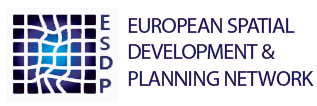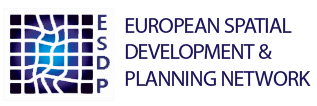International Module Methodology
In this section you will find information about the structure & programme of the International Module.
Philosophy of International Module
The IMSDP addresses spatial development dynamics and planning issues – including urban and regional
plan‐making, programmes and policies – from an interdisciplinary perspective that lies at the crossroads of economics, sociology, spatial planning and design, geography, political science, urbanism and ecology.
Throughout the programme, three types of dialectics are stressed and possibly reconciled: between development and planning, between theory and practice, and between planning and policy approaches.
Students are called to enhance their command of the theoretical debate in various disciplines and to improve their methodological skills through the constant interaction among themselves and with the staff members.
The programme has a clear ethical outlook: the planning philosophy shared by the academic staff is oriented to serve progress in society, based on principles of equity, social innovation and sustainability, and guarantees a wide pluralism in analytical foci and planning methodologies.
Programme & Session
The programme starts at the beginning of March each year and runs over a three month period. It consists of an intensive programme of lectures, discussions and research seminars with planning academics from various countries. The programme can be extended for an additional month devoted to individual research.
Structure & Pedagogy Method
The overall programme (30 ECTS) is structured in three modules (structured lectures & case study presentations):
- Socio‐economic Development in Space (8 ECTS)
- Planning Theory and Practice (8 ECTS)
- Emblematic International Planning Experiences in a Comparative Perspective (8 ECTS)
Parallel to the modules, a research seminar series (6 ECTS) is organised in which all students present their research work and its progress to both peer participants and faculty (at least 3 faculty members). These seminars accommodate various stages in post‐ graduate research: depending on individual trajectories, from the early definition of a master or doctoral dissertation project, to the writing of a specific chapter for a post‐doctoral or financed research project.
Each student makes at least two presentations during the three‐month training period (with at least one month interval), showing progress in the development of her/his research work, also on the basis of the recommendations by the panel of teachers and experts.
International Module Staff
The teachers belong to the ESDP network, which was created over 20 years ago and includes about 20 universities, and also to a newly emerging network of Universities in the Global South. They come from different disciplinary background and provide expertise on different European contexts and different dimensions of spatial development dynamics and planning. Although with different emphases and perspectives they share the same planning philosophy, oriented to serve progress, inclusion and sustainability.
Programme Coordinators
Prof. Pieter Van den Broeck
Department of Architecture
KU Leuven
Belgium
Prof. Constanza Parra
Division of Geography & Tourism
Department of Earth & Environmental Sciences
KU Leuven
Belgium
Prof. Flavia Martinelli
DArTe – Dipt. di Architettura e Territorio
Università degli Studi Mediterranea di Reggio Calabria
Italy
Angeliki Paidadaki (Assistant Coordinator)
Department of Architecture
KU Leuven
Belgium
angeliki.paidakaki@kuleuven.be
Natália Girão Rodrigues de Mello (Assistant Coordinator)
Division of Geography and Tourism
Department of Earth and Environmental Scieneces
KU Leuven
Belgium
natalia.giraorodriguesdemello@kuleuven.be




